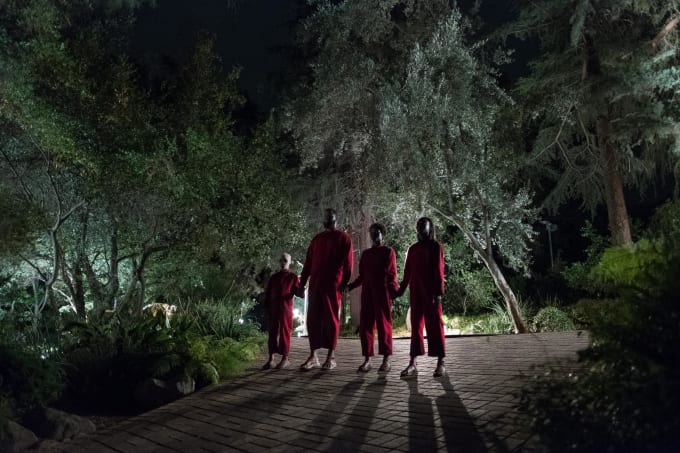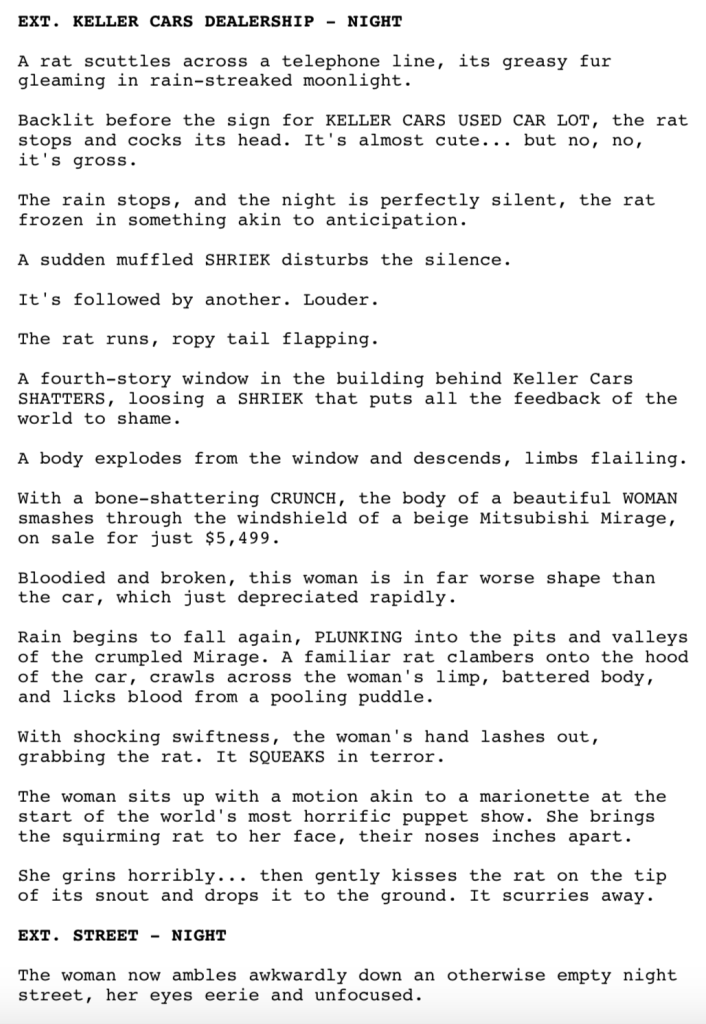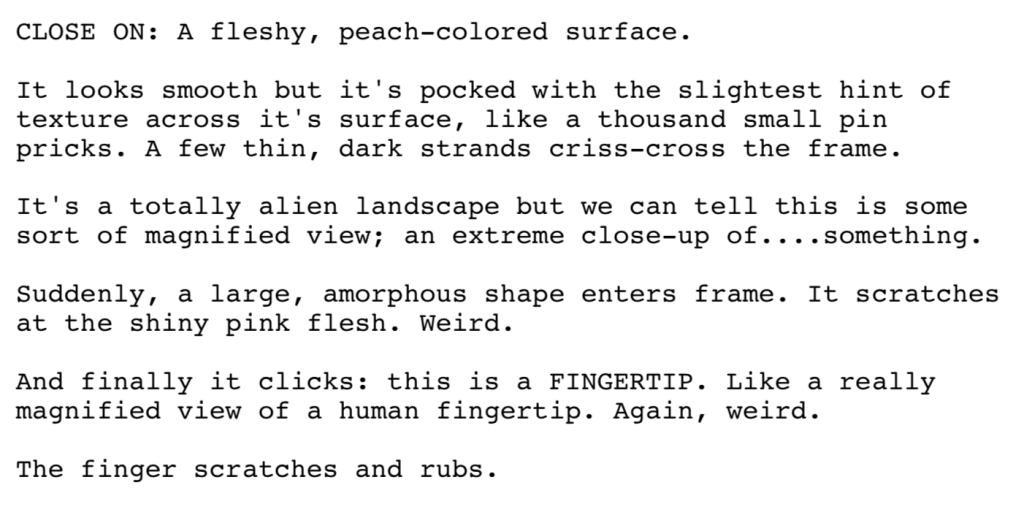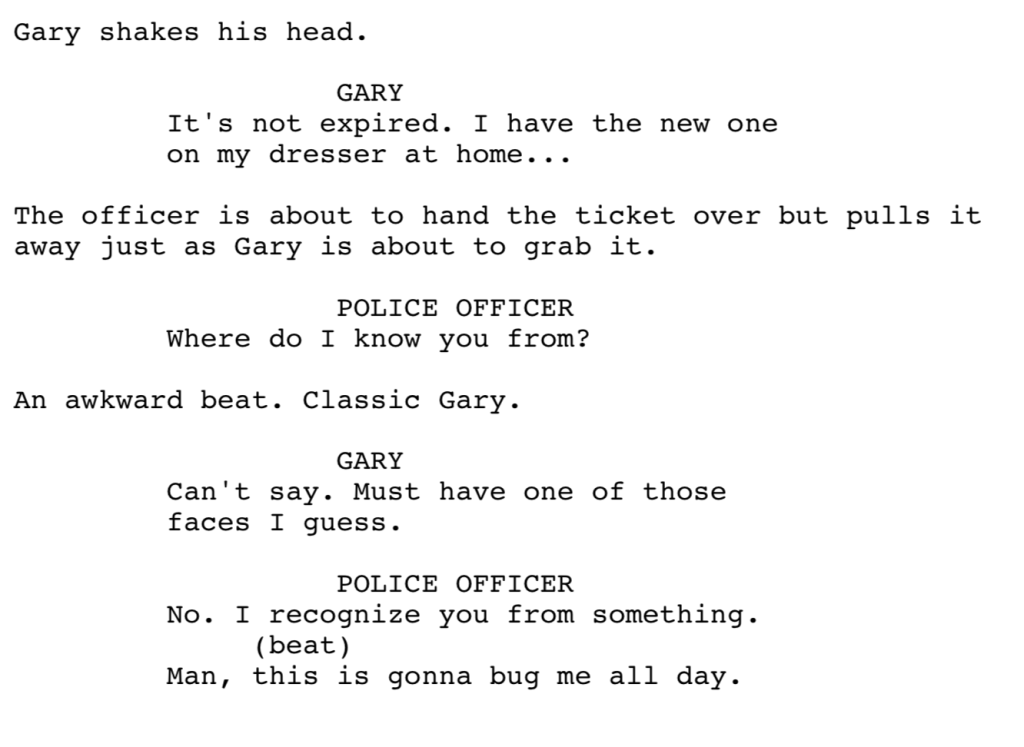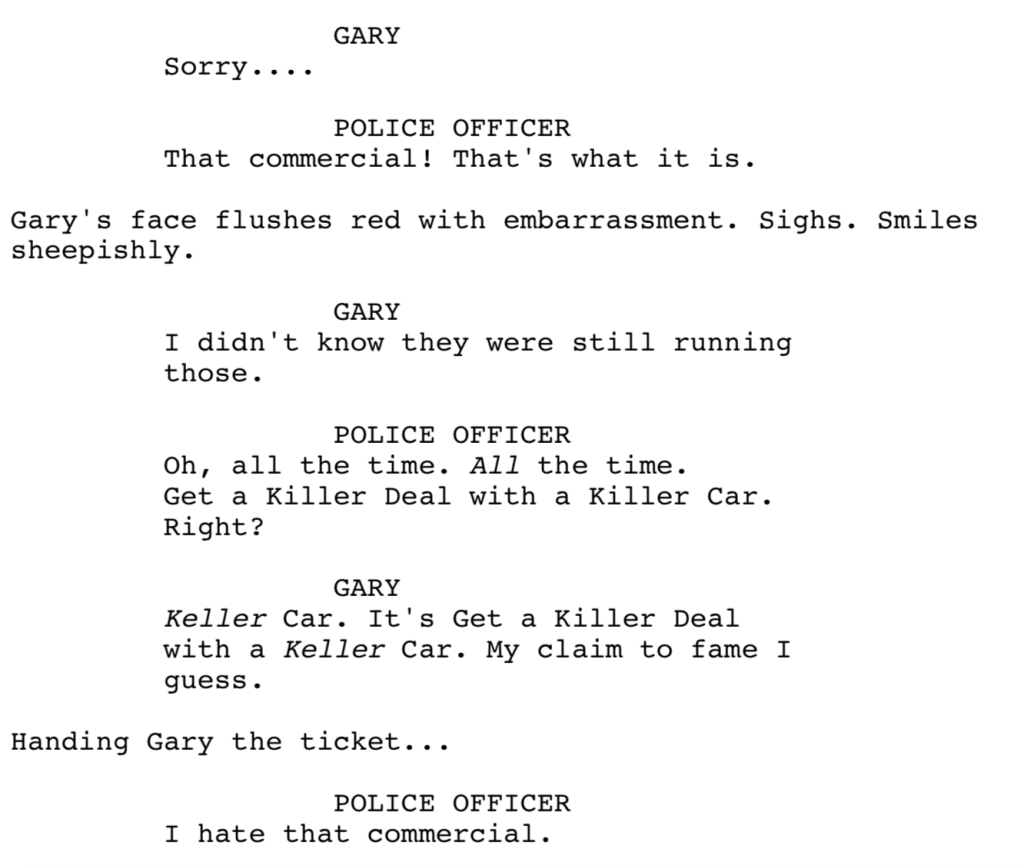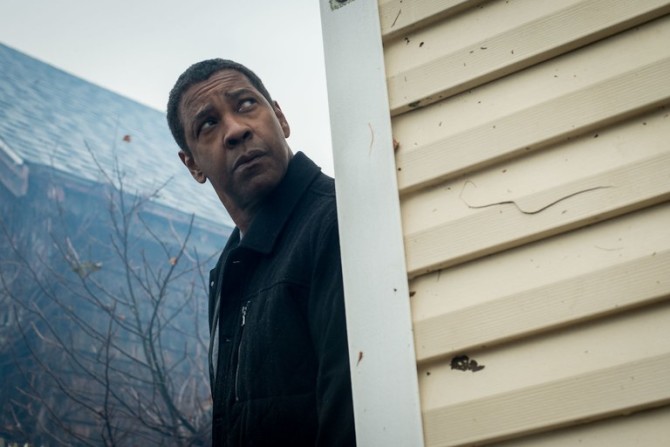I’m overworked and under the weather so I won’t be able to put up a review today but I didn’t want to leave you hanging so here’s a quick dialogue hack. This came up in a recent script consultation. The writer had written a good script but was having some issues with on-the-nose dialogue. On-the-nose dialogue is basically when a character says exactly what’s on their mind or exactly what needs to happen to move the plot forward. Now while I knew this was a problem, I was having trouble conveying how to fix it. Then it hit me.
“I” is a gateway word to on-the-nose dialogue.
Think about it. “I’ve always struggled connecting with people.” “I wish I would’ve listened to dad more.” “I can’t do this anymore.” These are very ON-THE-NOSE things to say. So here’s a solution. Instead, have the other character in the scene say these things. You get the exact same information across, but without the on-the-nose quality. “You’ve always struggled connecting with people.” “You should’ve listened to dad more.” “You can’t do this anymore.”
The reason the “I” stuff is problematic is because we rarely, as human beings, break down and release our deepest darkest thoughts about ourselves to others. Therefore it reads inauthentic. It can work if the entire movie has been building up to some cathartic breakdown. But otherwise, you want to avoid it. This is just ONE WAY to do so. But sometimes, eliminating the “I” lines altogether is the way to go.
Now go do some writing!
Genre: Horror
Premise: (from IMDB) A family’s serenity turns to chaos when a group of doppelgängers begins to terrorize them.
About: After Get Out took the world by storm, Peele was offered everything in Hollywood. So it was a surprise to all when he rejected all those franchises and made another horror movie. It proved to be the right choice, though. There was crazy buzz immediately after he dropped the first trailer for “Us.” Since then, interest has only risen, and the film killed it at the box office this weekend, making 70 million bucks. That would be 37 million more than Get Out’s first weekend. It appears that in only two years, Peele has established himself as one of the top writer-directors in the business. What will he do next??
Writer: Jordan Peele
Details: 116 minutes
Before we get started, can we all take a second to appreciate the irony of Jordan Peele casting his acting doppelgänger in the role of the father here? Winston Duke even sounds like Peele. Also, kudos to Peele for figuring out how to make this premise marketable. It seems obvious in retrospect. But think about how many failed doppelgänger movies there have been. Can’t remember any? That’s my point. There was box office titan Enemy with Jake Gyllenhaal. Oh, and that Jesse Eisenberg movie that entered into the zeitgeist, The Double.
Once you see Us, it’s easy to understand why those movies failed. A doppelgänger movie about a single person has maybe a good 20 minutes of story in it before you’re descending into 3am college territory (“So what if, like, the doppelgänger is from… like… another dimension.” “No, what if WE’RE in the other dimension.” “Whoaaaaaa.”). Once Peele decided on creating an entire family of doppelgängers, he quadrupled the amount of story he could tell. I wasn’t surprised, after watching Peele’s interviews later on, that he credits that idea as the turning point for him. He had always wanted to make a movie about doppelgängers. But it was only when he conceived of an entire family of them that he knew he had a movie.
If you haven’t seen the film, it follows the Wilson family, Adelaide and Gabe, along with their kids, Zora and Jason, as they head up for a weekend at their lake house. Gabe wants to go to the beach but Adelaide is resistant as she had a traumatic experience there once as a kid. But Gabe guilt trips her into going anyway. Once there, Adelaide is overwhelmed by her memories and insists they leave.
Almost immediately after they get home, a family appears in their driveway. But not just any family. It’s them. Or some bizarre copies of them. This copy family corners the Wilson family, then forces them to separate so that each doppelgänger can torture their “original.” Somehow, the Wilson family escapes their doubles, only to find that every family in the entire community is experiencing the same thing. Their doppelgängers have come to kill them.
Adelaide is convinced that if they don’t eliminate these things, they will always be pursued. So she sets out to kill each one. This plan goes sideways, however, when Adelaide’s doppelgänger snatches Jason. Adelaide follows them deep underground, where she learns that the doppelgängers have been living for decades, preparing for this moment. She manages to kill her double and get her son back. But when she gets back to the surface, she learns that the doppelgängers are united, intent on finishing their master’s orders.
I had one heck of a time figuring out if I liked this movie or not.
I would literally go from hating it to loving it to hating it to loving it, back and forth over and over, and I couldn’t figure out why. I finally identified the issue. I didn’t know whether Jordan Peele was trying to make a serious statement movie or just having fun. If you’re trying to make a statement, you must be held to a higher standard. You can’t toss in half-baked ideas then tell us we’re watching a metaphor for Trump’s America.
For example, anybody who’s been to a house on the lake knows that even a whisper sounds like a bullhorn. So why at no point did the family scream for help when they were being stalked by the killer family from hell? There was literally a house 20 feet from them and they never thought to scream out, “HEY! COME OVER HERE AND HELP US!” However, if all you’re doing is making a fun film, that stuff isn’t as big of a deal. And in the end, particularly after the twist, I realized that all Jordan Peele was trying to do here was give us a good time. Through that lens, I enjoyed the movie.
But oh boy. This was not your garden variety screenplay. There were a lot of ideas packed in here. And Peele did not play things safe. As a reader, I respect that. One of the biggest risks Peele took was to open this up beyond your basic home invasion movie, and turn it into this larger overarching mythology. I’ve read so many home invasion movies over the years, that I know exactly the moment where 99% of them fall apart. It’s at the 45 page mark. After the hook and after the fun and games section, the writer realizes that everything that happens inside this house going forward is going to feel the same. Sometimes you can troubleshoot this with great characters but it’s rare I see great characters in a home invasion script. So most writer b.s. their way from page 45 to the climax.
Peele “solved” this problem by opening the movie up and expanding the threat to the entire community. You have to understand how giant of a risk this is. While keeping things inside the house does risk repetition, it’s also the place where the most tension is. It’s scarier for your characters to be trapped in a contained location than it is for them to have an entire town to run around in. So once they first escaped the house, I thought, “What the heck is he going to do next?” Turns out he upgraded his home invasion movie to a town invasion movie, almost like a zombie flick. It turned out to be a good move because I didn’t know where things were going from there.
However, it was far from a smooth ride. The more mythology Peele revealed, the more you were like, “Huh?” There’s a lot of things you can pick apart but just the idea that these people with an IQ of 40 all lived together in some kind of underground community, remained well dressed, kept it clean, and subsisted solely on live rabbits, was a little hard to believe.
And Peele had a tendency to make his characters do what he needed them to do to make his movie work as opposed to what they would really do. I’m sorry but if someone comes into my house and threatens my family not with a gun but with a pair of scissors? I ain’t gently sitting down on the couch and asking them to tell their story. I’m getting my family and getting the heck out of there. There were a lot of moments like that where you had to stretch the realm of believability to buy into what the characters were doing. Again, there were 700 moments in the film where a scream would’ve increased the chances of survival by a million percent. Yet no one thought to do it.
As for the twist, I thought it was okay (spoilers obviously). I’m just not sure it brought anything new to the table. It’s not as interesting to see the twist from the person who benefited from it as it is the person who got screwed by it, right? I’ll say this, though. The woman sitting behind me in the theater said, in complete shock, “Oh no no no no nonononono,” when it happened. So it definitely worked for some people!
The thing you gotta admit about Us is that whether you liked it or not, it’s one of those movies you have to talk about after it’s over. I’m sure you guys are chomping at the bit to give your own take. So have at it. What did you think?
[ ] What the hell did I just watch?
[ ] wasn’t for me
[x] worth the price of admission
[ ] impressive
[ ] genius
What I learned: I consider the 45 page mark to be the most dangerous page in a screenplay. You’ve passed the inciting incident, the hook, the break into the second act, and the fun and games sections. All the fun stuff is behind you. What you do next will determine whether you have a good screenplay or a bad one. So you need to have a plan. Jordan Peele’s plan was to open up the movie beyond the house, expanding the mythology to something bigger. Whether you agree with that decision or not, it’s the thing that made this movie unlike any other horror movie you’ve seen.
Congrats to Adam and his mysterious co-writer for winning the First 10 Pages Challenge with their script, “Personal Hell” (aka “Girl Who Disturbed The Rat”)!!! He wins a feature consultation from me! Yaaay!! For those of you who weren’t around in January, I set forth a challenge to write 10 pages that were impossible to put down. There were over a thousand entries. My one rule was, “As soon as I’m bored, I’m out.” The eleven finalists were announced last Thursday. And you, the readers of the site, voted for the winner. It was a close race but Rat took home the top prize. Adam e-mailed to let me know he and his writing partner are going to put this script together over the next few months. He pitched it as, “American Beauty meets Evil Dead.” Is there a better crossover pitch in history? He even sent me a synopsis.
Gary Klein is on the cusp of absolutely nothing. As an Assistant Manager of California’s 12th largest used car dealership, he has resigned himself to a life of complete and utter normalcy. He and his wife, Beth, were high school sweethearts and have been married for 20 years. She’s the only person that he’s ever slept with and Gary and Beth’s marriage now sits on a foundation of resentment and mistrust as result of an affair that Beth had last year. The two are in therapy and Gary remains committed to the relationship, despite his increasing obsession with the fact that she has now, “been with two and I’ve only been with one. It doesn’t seem fair!” In an effort to quell the issue, Beth offers Gary a ‘hall pass’: he is free to sleep with another woman, if he can seal the deal. Amazingly, Gary is able to seal the deal with a sexy and mysterious woman who picks him up at a bar, but she turns out to be a soul sucking Succubus straight from hell! Gary barely escapes with his life and only half of his soul. Now, he and his horror fanatic son, Zack, must quite literally descend into the depths of hell to reclaim the rest of Gary’s soul and, just maybe, a little bit of his pride.
You can read the first ten pages yourself here. In the meantime, I’m going to explain why these pages won me over and why I believe you voted them the number one entry. Let’s get started.
First lines are important. They not only begin your story, but they’re a major clue as to whether the writer can write or not. If the line is sloppy, it’s a bad sign. If it’s overwritten, it’s a bad sign. If it has grammar errors, it’s a really bad sign. A good first line is confident, but not overtly so.
A rat scuttles across a telephone line, its greasy fur gleaming in rain-streaked moonlight.
I like the verb “scuttles.” It’s a small thing. But it’s more descriptive than “runs.” However, the prize word in this sentence is “greasy.” Saying “rat” conjures up a generic image. And generic images are death in writing. Film is a visual medium so the challenge is to create the image the viewer will see onscreen. You can do that by choosing words that bring images to life. A “greasy rat” is so much more visual than a “rat.” This might sound like over-analysis, but I knew after this line I was in good hands.
…the rat stops and cocks its head. It’s almost cute… but no, no, it’s gross.
This is another good sign. The writer is having fun. He’s not trying to ace a grammar test. It’s “almost cute,” but “no, no, it’s gross.” With so many scripts, I can feel the consternation in the writing, like the writer’s terrified that if even one word isn’t perfect, he’ll be laughed out of screenwriting. This writer is relaxed and cool, and that makes me feel cool.
With a bone-shattering CRUNCH, the body of a beautiful WOMAN smashes through the windshield of a beige Mitsubishi Mirage, on sale for just $5,499.
This is the moment I knew I’d be reading all ten pages. A lesser writer would’ve started this scene on the woman. By starting on the rat, then having the woman explode out of nowhere, it displays a sense of surprise that indicates a creative mind. And the level of detail at the end of the line is genius. She doesn’t just fall into a “used car.” She smashes through the windshield of “a beige Mitsubishi Mirage, on sale for just $5,499.”
Bloodied and broken, this woman is in far worse shape than the car, which just depreciated rapidly.
Again, look at how much fun the writer is having. And not in that annoying “LOOK AT ME” way that lots of amateur writers resort to. What is “look at me” writing? Something like: “She just crashed into the kind of car you lost your virginity in at your senior prom.” The humor in this line is just bold enough to grab our attention, but no so bold that it kills the suspension of disbelief.
The woman sits up with a motion akin to a marionette at the start of the world’s most horrific puppet show. She brings the squirming rat to her face, their noses inches apart.
Wait a minute. The woman is still alive?? Okay now I just went from interested to involved. — As we move into page 2, with the woman getting hit by a truck, you begin to see why this script won the challenge. SOMETHING IS HAPPENING. But not just “anything” something. Something rare. A lot of you sent me scripts where things were happening, but they were common scenarios. Like robbing a bank or a car chase. Note how something is happening here, but it’s also unique. Who is this woman? Why is she falling into cars and getting hit by trucks and is still alive? Those kinds of questions are what’s keeping me reading.
This is why I’m not putting the script down. There’s a sophistication to the writing that nobody else brought to the table. Look at the unique way the writer chose to reveal something as simple as a finger scratching. Note the breezy confidence within the sentence structure itself. You read this sequence and you feel like you’re reading a writer who has command. Contrast that with the below clip from another entry. There’s nothing wrong with the clip. But note how stiff the presentation is compared to Personal Hell.
Moving on…
GARY KLEIN sits nude, in all his forty-five year old glory, on the edge of the formica counter top in his ‘master’ bathroom.
Look at how great this character introduction is. The character intros I usually read go something like this: “Gary (40s) looks much older than his age.” How much more awesome is meeting Gary nude, “in all his forty-five year old glory.” And doing so amongst such a specific visual image. Again, guys. Note the SPECIFICITY in the writing. He’s not sitting at a sink. He’s sitting “on the edge of the formica counter top in his ‘master’ bathroom.” That kind of writing is what creates an image in the reader’s head.
GARY: “Have you seen my dropper thing?”
A seemingly innocuous line of dialogue. But this line says everything about the level of talent on display here. Most writers would write this line literally. Instead we get this fun, but more importantly, REALISTIC, line of dialogue: “Have you seen my dropper thing?” That’s how people really speak, which adds to the authenticity of the script. — And that fun dialogue continues as he and his spaced out wife chat. Why wouldn’t I want to keep reading this script? I’m having a blast.
The introduction of Gary’s son Zach is fun. But it wasn’t that that I was impressed with. I love how the end of this scene pays off Gary’s earlier intro. He’s looking for his “dropper thing” and it turns out his weird son is using it for his weird experiment. Setups and payoffs display a level of planning that indicate the writer has actually thought through their script. This may seem like a small thing but half the screenplays I read, I can tell the writer is figuring things out as they go along.
He’s immediately broken from his trance and quickly turns the station to some alt. country bullshit.
I mean, come on. If I stop reading, I’m going to miss out on more lines like this. No chance. I have to keep going. Next up we have an exchange with a cop after Gary was rear-ended. I love how Gary was the one who was rear-ended but he’s still getting a ticket (for expired insurance).
This is a classic scene reversal at the end, a tool all of you should have in your toolbox. The scene is going in one direction: Wow, you’re that famous guy. It ends in the opposite direction. “I hate that commercial.”
And the pages end with another payoff. Gary shows up at his place of work, which happens to be Ground Zero for what happened in our opening scene. At the risk of repeating myself, this displays a writer with a plan. When you combine that with a unique opening scenario, writing sophistication, and a sense of humor, you get a script which conveys that elusive “voice” that Hollywood agents and producers are clamoring for. Did I have any issues with the pages? Not really. Maybe we could’ve given Zack a more interesting introduction. It didn’t make a whole lot of sense that he’s looking at himself in the mirror first thing in the morning practicing his pretend cutting. But it did give me a nice feel for the character. Adam was spectacular in that department. I got a good feel for everybody.
The question now becomes, can Adam and his writing partner turn this into a killer feature screenplay? I will keep you updated on that. He says he needs a few months to write the script. After I consult on it, I’ll ask him if I can review it on the site.
Congrats to Adam and his co-writer!
What did you guys think??
Since I think about screenwriting 24/7, I’m often juggling 2-3 big picture screenwriting questions in my head at a time. I mentally lay out the problem, work through potential solutions, and eventually come up with a few tiny insights, failing to crack the elusive equation, which bugs the heck out of me. My latest obsession: “How do you write a script that blows people away?”
I figure that’s what we’re all trying to do here. Write that story that gets the reader to place their laptop down, sit back, lose track of time before what they just read comes slamming back into them. They whisper to themselves, “Wow,” and then think about who they can e-mail to tell them about it.
But here’s the thing. When’s the last time anyone was blown away by a screenplay? I’m talking anybody! And I’m asking you because outside of Hollywood, the people on this site read more screenplays than anyone. I’d venture to guess a good portion of you have read more screenplays than the average agent. So if anyone’s an authority on getting blown away by a screenplay, it would be you. And yet, how many people here can say they’ve been blown away by something they’ve read in the past year? Hell, in the past three years?
On the surface this speaks to how hard it is to write a good screenplay. But I have a more optimistic view of things. This means that if you can learn how to blow someone away, you’re in a league all your own. So how do we access this elusive cheat code? By back-engineering, of course. I’ll go back to the scripts/movies that blew me away (Meat, Eighth Grade, Brigands of Rattleborge, Jojo Rabbit, Vivian Hasn’t Been Herself Lately) and ask what ingredients those scripts had that made them so special. In doing so, I was able to find five key “blow them away” ingredients. And the good news is, you only need one of them per script. I’m going to go through each, from least to most influential. Let’s get started!
5) Earth-shattering plotting – Truth be told, plotting (the act of constructing a storyline that zigs and zags and engages throughout) is the least influential element to blowing people away. Most readers will tell you plotting should be a given and I agree with that. I can count the number of times I was blown away by the technical proficiency of someone’s well-plotted screenplay on one hand. However, it you can construct a plot that keeps doing amazing unexpected things, you can blow readers away. The crown jewel example of this is Source Code (original script, not the movie). Source Code is all plot. It doesn’t have a ton of character development because it doesn’t have time for it. But it takes you on this wild ride that you can’t not be blown away by. So even though this is the option that’s the least likely to blow a reader away, if you’ve got a concept that allows for lots of great twists and turns, earth-shattering plotting can get you that elusive “Wow.”
4) Imagination for days – There’s definitely currency in imagination. Look at The Matrix. It’s such an inventive mythology, it’s hard not to be blown away by what’s going on. But like “earth-shattering plotting,” it’s hard to impress on imagination alone. That’s because the line between inspired and messy is thin. A cyborg race on the sixth moon of Kipsis run by Lord Soothsayer might sound great at 3am when you’re on your tenth red bull. But it doesn’t read that way. I would recommend staying away from this option. But if you’re a naturally creative person who has 5+ years to world build a killer concept, you’ve got a small chance (I’m not joking about the 5+ years. The Matrix’s mythology was built over 10 years. And if I’m correct, J.R. Tolkien spent 3 years coming up with the geography of his world alone).
3) A fascinating character – Now we’re approaching the true game-changers. A fascinating character can blow the top off a screenplay. That’s because human beings are fascinated by other human beings. So if you construct someone we can’t look away from, the rest of your script can be average and we’ll still be blown away. Recent examples are Liam Neeson’s character in The Grey. After he read that letter to his wife, I was all in on him. Abraham in The Brigands of Rattleborge. Holy S&#%. Silver Lining Playbook had two of these characters. Any character who’s a force of nature, a story in their own right, can captivate a reader. What does that mean, “a story in their own right?” It means even if your movie didn’t have a plot, we’d still want to keep reading because the character has so much going on. Coming up with an iconic character is easier said than done. But if you start off TRYING, you’re a step ahead of the guy hoping it will happen organically.
2) Voice – You taste that? It’s the taste of blowing away the reader! Voice, or a writer’s unique point of view conveyed through their writing, is what most industry types will tell you is the key to blowing them away. Voice is where you find that dialogue with an edge. It pops because of the writer’s talent to listen to the world and transcribe it back through their unique lens. Christy Hall’s Daddio and Get Home Safe are the current prized hams in this category. But voice can refer to a weird plot and weird characters as well, anything that feels like we’re somewhere we haven’t been before. Taika Waititi’s Jojo Rabbit comes to mind. Unfortunately, most of your voice is already wired into you. But you can definitely hone it by paying attention to what parts of your writing are unique and how your view of the world is solidifying as you get older, then tap into that as your career matures. I believe Rodney Dangerfield spent 30 years in obscurity before he found his “I don’t get no respect” voice. He had to not get a lot of respect to realize that’s the lens he saw the world through. But beware of “unhinged voice” or “fool’s gold voice.” This is someone who writes with a unique voice but has no sense of structure or focus. They spit the world out onto the page and let the reader figure it out. That’s not the kind of voice that blows people away. It’s the kind that annoys them.
1) Emotion – Finally, we arrive at the top of the mountain. The most effective way to blow someone out of the water is to make them feel something, and make them feel it deeply. Unfortunately, this ain’t easy. It relies on you developing characters we both like and care for, a skill that takes time. But if you can pull it off, you can give the reader a cathartic emotional experience they’ll never forget. One of the most common emotional tools is “negative becomes positive.” You tease the audience that a negative result is coming, then rock them with a positive one. Will Hunting has lost the girl. Will Hunting gets in a car and goes after the girl! The more permanent the negative, the more effective the positive. This is probably why “death and rebirth” climaxes have led to some of the most emotionally explosive endings ever. E.T. is dead. No, E.T. is still alive! Andy Dufresne has hung himself. No, Andy has escaped! The act of taking us from the bottom to the top is so powerful that there’s no way the reader can’t be rocked when it’s executed well. But again, you have to know how to build compelling characters in the first place or we won’t care what happens to them, even if you execute what I just taught you perfectly. Nor is this the only way to pull off an emotional ending. Characters can die for good and it still blow us away (Braveheart). Also, an internal emotional switch can rock us to our core. A character who’s written off humanity learning to open himself up and love again can bring a grown reader to tears. Again, stock versions of this won’t work. You have to create compelling characters based in truth (so that we believe they’re real people) for the reader to feel anything. But watch out if you do. Your endings will be unforgettable.
Everything I’ve said assumes you know the basics. You know how to structure a screenplay. You know how to write compelling scenes. You know what ‘show don’t tell’ means. What ‘get in late and leave early’ means. What conflict is and how to use it to create tension. What a character goal is. What stakes and urgency are. If you know all that, then using one of these five options on your next script will work for you. Hopefully, I’ll get a chance to read it and be blown away. :)
Hey guys. I’m still offering the Nicholl discount! That’s $100 off 4 pages of notes. If you send me your script this weekend, I can get you your notes back by the end of the month, which gives you a full month before the deadline. E-mail me (carsonreeves1@gmail.com) with the subject line: “NICHOLL.” Also, $25 for 1 logline consultation and $40 for 2! This is great if you want a logline rewrite or if you just want to know if your idea is any good. That’s the deal of the century. And it ends Sunday!
Today I teach you how to avoid the thing that did me in as a screenwriter.
Genre: Crime/Murder
Premise: A jaded detective teams up with a young cocky LA county detective to solve a string of murders in Los Angeles.
About: This project just got announced the other day. John Lee Hancock has convinced Denzel Washington to sign on to his long gestating project, which he originally wrote in 1997, back when these murder detective stories were all the rage (“Seven” came out in 1995). Can the duo revitalize the sub-genre?
Writer: John Lee Hancock
Details: 145 pages!!! (1997 draft)
This week is “Hollywood Reality Week,” as it’s a reminder of just how long it takes to get movies made. Monday, we had a big budget movie that took 10 years to see the light of day and needed the help of distributor who wasn’t even around when the script was written. Yesterday, we saw how a small budget project took 10 years and an industry about-face regarding equal opportunity to get made. And for today, you have to add both those projects together to equal the number of years it’s taken for The Little Things to land a green light. Maybe the most under-appreciated quality in a writer isn’t talent, or voice, or skill. But patience. Which is ironic, because you’re gonna need a lot of patience to get through this script.
Joe Deacon, or “Deke,” as he’s known to friends, is a veteran LA cop who’s been assigned to solve a recent string of murders. He’s paired up with the active detective on the case, Baxter, a movie-star looks hotshot who doesn’t like the fact that he’s been assigned a professional looker-over-shoulderer.
Of the four girls who have been murdered, there are a few similarities. The girls all have bite marks on their faces. And, strangely, while all the food in their apartment has long since rotted, there are a few items – like milk – that are fresh. How could that be? Or maybe the bigger question should be, why would any writer think that was interesting?
Things heat up when a fifth woman, Ronda Rathman, disappears, forcing Deke to go rogue, following his gut on a scumbag named Sparma. He starts following Sparma around town, waiting for him to slip up, but it turns out Sparma is a crime nerd, and makes Deke easily. He even volunteers to come in and answer any questions the cops have, cockily pointing out there’s no way he can be the murderer.
This bravado throws Deke, who thought he could take this case to the bank. He must re-collaborate with Baxter, who’s increasingly annoyed by Deke’s low-key investigation methods (Deke’s convinced that every murder is about the little things, never the big ones). But the two are going to have to learn to work together to stop this guy because, otherwise, more women are going to get bitten. And then murdered.
Today I want to tackle a screenwriting question I think about all the time. Because, if I’m being honest, it’s the reason I believe I failed as a screenwriter myself. And that’s this practice of vanilla screenwriting. John Lee Hancock is one of, if not the most, vanilla working screenwriter in the business. The Blind Side doesn’t have a single risky beat in it. The Founder is almost painful in its plainness. He even took a great screenplay in Saving Mr. Banks and watered it down so much, that what was once prime rib, became a Happy Meal.
What is “vanilla screenwriting?” How do you avoid it? Should you even avoid it?
Vanilla screenwriting is a combination of cliches, safe choices, familiar plot beats, and characters without extremes. The vanilla screenwriter knows what works. So his scripts are never bad. But the vanilla screenwriter can never rise above average. Vanilla screenwriting is the equivalent of the “nice guy.” The nice guy is always going to listen to your problems. He’s going to cheer you up with a dad joke. He’s going to be there if your car breaks down on the side of the road. But the nice guy never excites you.
That slot is reserved for the dangerous guy. The dangerous guy is not going to listen to you. He’s going to cancel your coffee date at the last second without explaining why. He prefers offensive jokes over dad jokes. And he doesn’t care if you think they’re funny or not. In fact, he seems only mildly interested in your reaction to anything he does. You should hate this guy. And yet all you can do is think about him.
Maybe the best way to explain vanilla screenwriting is to compare this script to the movie it was inspired by, Seven, a film that had come out 2 years before Hancock wrote The Little Things. “Seven” has victims who have been forced to eat until their insides exploded. “The Little Things” has victims with bite marks on their faces. Which of these two choices is vanilla?
So why are there people like John Hancock who have careers? Or Ron Howard? Or Roberto Orci and Alex Kurtzman? The answer is simple. It’s because some people like vanilla. What a lot of industry folks forget is that the average person only goes to the movies a few times a year. So they don’t need big sexy plots. A less assuming – yet still well told – story will do the job.
But the problem with vanilla screenwriting is that it’s an impossible style to break in with. I don’t know how John Lee Hancock got into this business. But I would bet my left hand that if he were an unknown screenwriter trying to break in today he wouldn’t be able to. His scripts are soooooooo bland. Soooooo middle-of-the-road. You forget them almost seconds after you read them. You have no idea how hard writing that plot summary was. Even fifteen minutes after finishing the script, I was trying to remember what happened.
I mean you can see it in two of the most important elements of the screenplay – the title and the main character. The title is “The Little Things.” It’s actually telling you that it’s going to be a “little” story with “little” going on. And the main character’s name, “Joe Deacon,” sounds like an amalgam of every single protagonist name ever. I don’t know how you get more vanilla than that.
Unfortunately, all of this plays out in the script. The investigation in The Little Things is so standard I will guarantee that nobody who reads it will be able to locate a plot element or a character they haven’t seen in a prime time network procedural. It’s that dull. The one thing you have to do when writing in familiar waters is bring something new to the table. There’s nothing new here, guys. Not even a single line of dialogue I haven’t read before.
So why did Denzel sign onto this? I don’t know. It probably has something to do with the fact that once a director gets an actor an Oscar (Sandra Bullock won for The Blind Side), he’ll always be able to get movies made because actors will think he can do the same for them. That’s the only reason that makes sense to me because otherwise, I don’t see a single original component to this script. It’s so vanilla, you’re afraid it’s going to melt. Actually, “afraid” is the wrong word. Cause if it had melted, I wouldn’t have had to read it.
[ ] What the hell did I just read?
[x] wasn’t for me
[ ] worth the read
[ ] impressive
[ ] genius
What I learned: To avoid vanilla writing, get messy. I wasn’t the biggest fan of True Detective, but the last thing that script was was vanilla. It had a brutal imaginative first murder scene. It jumped around in time. And it had a main character who was a f%$#ing mess. That’s how you stay away from vanilla.


